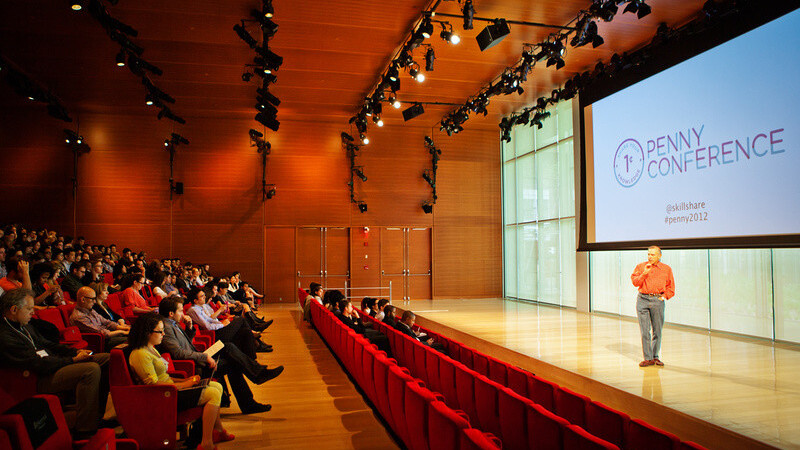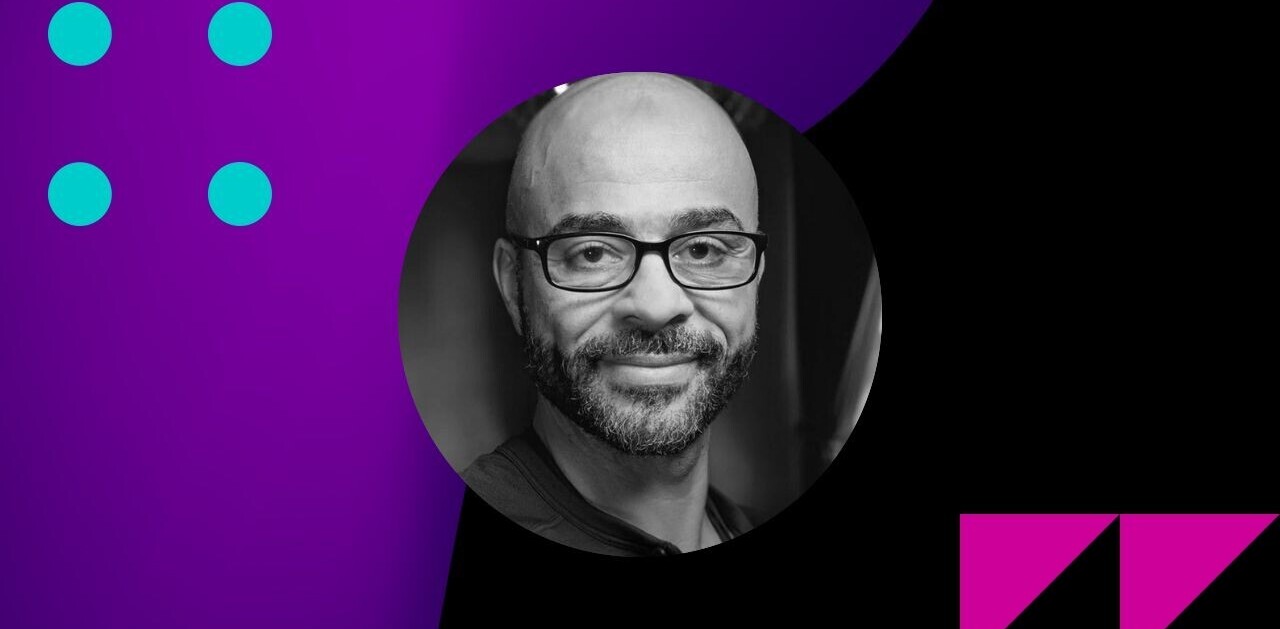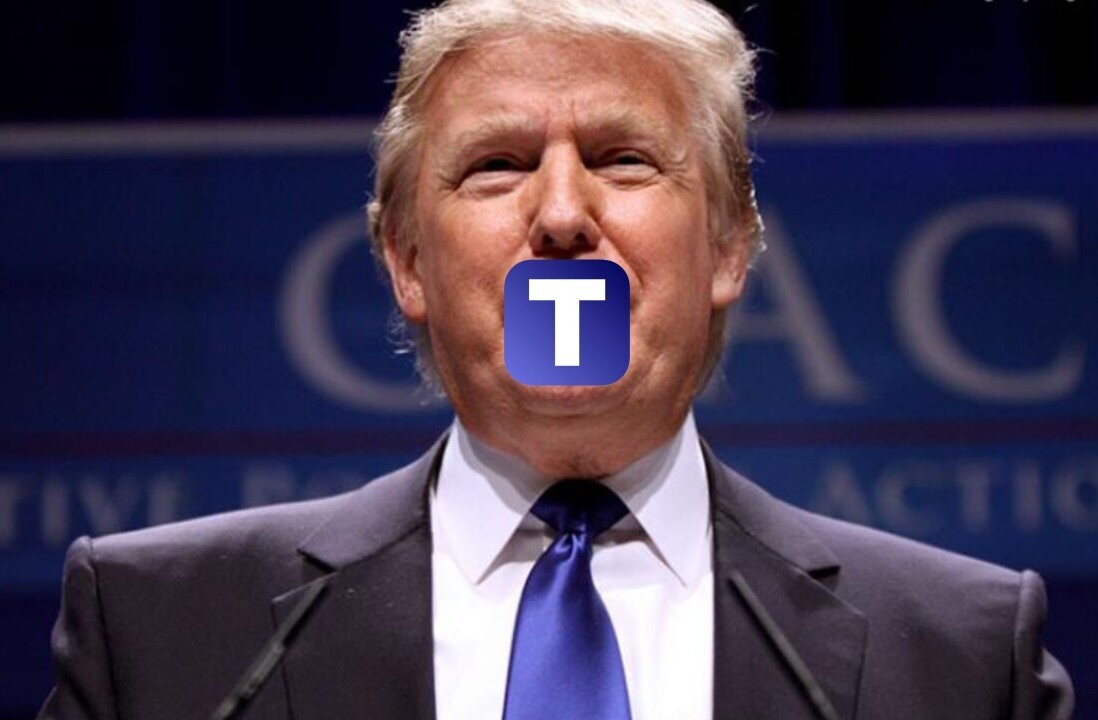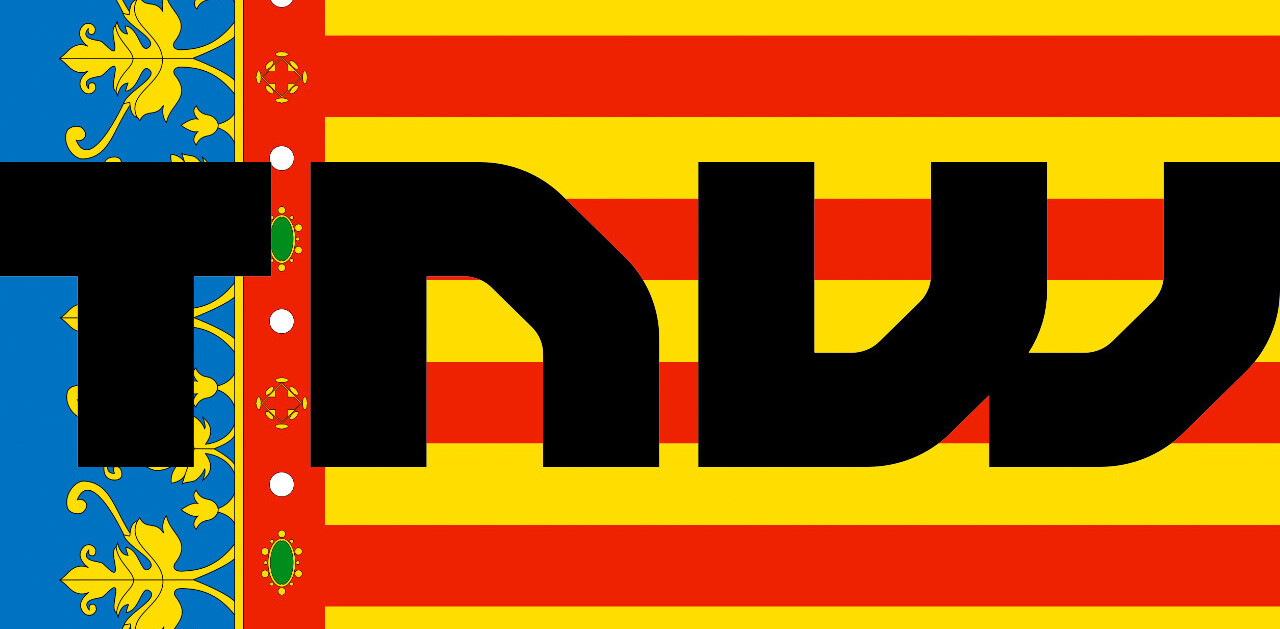
Curiosity gives birth to boldness. This sentiment was echoed widely throughout Skillshare’s first-ever Penny Conference on April 20th at The Times Center in New York City, marking a year since the launch of the skills-based community marketplace where you can “learn anything from anyone”.
Penny Universities, which in the 18th century were a convergence for innovation, brought together farmers and businessmen to a communal space to share ideas, conversations and debates on current topics. Skillshare’s 2012 Penny Conference reintroduced this intellectually-charged and highly curious atmosphere to an impassioned crowd of innovators, entrepreneurs, students and teachers all with a common interest in challenging the institution of education.
Ten game-changers took the stage ranging in expertise as teachers, founders of non-profits, restaurant owners, digital strategists and authors. They spoke collectively about the future of education and the importance of innovation in a realm that is often characterized by test scores and teacher effectiveness measures.

Michael Karnjanaprakorn, co-founder and CEO of Skillshare, started off the day talking about the importance of reuniting learning with education and defining what learning means in the 21st century. He talked about learning through showing, doing, trying, failing and making, which is often in contrast to our passive test system that asks for the right answers. As a student, teacher or anyone who takes part in the education system, Michael said, “it’s about being curious and asking the right questions.”
The question posed by Skillshare’s Penny Conference to its’ speakers was clear:
“If you could reinvent education for the twenty-first century what would that look like?”
Each speaker addressed this question with vigor and passion, and made it clear that the separation of learning from education is an indispensable problem; learning must be reunited with education if we are serious about making real change. The following themes emerged throughout the day as each speaker interwove their story with their re-imagined future for education:
Learning is Active
Whether you’re studying trigonometry in the classroom, learning to write a book or taking a class on UX design, learning is a social and collaborative process. Kio Stark, author and teacher at NYU ITP, talked about the need for active learning where communities can learn together and share their resources, tools and knowledge. She noted sites like Memrise, Einzstein and Mendeley, which are building new infrastructure to make learning more active and interactive between students. Not only is active learning necessary but also using the knowledge you have acquired once out of the classroom. As Tony Wagner, co-founder of Change Management Group at Harvard University, said, “The world doesn’t care what you know. What the world cares about is what you do with what you know.”
Education as a Marketplace is Changing

At one point the education marketplace was about private versus public schools and which institutions had the best reputation. As the twenty-first century brings forth new technology, the barriers to entry are breaking down marketplaces across sectors. Charles Best, Founder and CEO of DonorsChoose.org, referenced Kickstarter and Etsy as examples of platforms that broke down the barriers to entry for both individuals and groups starting projects and selling crafted products. He sees the same pattern happening in education: “How long you have to wait, who you have to know and being lucky are no longer the requirements to enter this space.” Removing traditional gatekeepers from the picture allows more people to make a wider impact and uncover ideas that will ultimately change the face of the education marketplace. Think open universities, social learning networks, innovation-driven curriculum, apprenticeships and the democratization of learning.
Real World Skills 101
The main distinction between being in school and being in “the real world” is that our schools and institutions are isolated from and are not focused on teaching the skills needed for today’s world. Tony Wagner talked about schools awarding specialization (i.e. A students) and encouraging individual achievement instead of teaching collaboration, taking risks, iterating, and failure, which are necessary skills as an entrepreneur or innovator.
Zach Sims, co-founder of Codeacademy, discussed how the definition of literacy is changing to include computer coding and algorithms, yet our schools are not keeping up with these changes. “We’re teaching technology of yesterday with methods from yesterday,” Zach said, illustrating this concept with an image of a college student with a book “Intro to Java Course.” Education must adjust and realign to teach the skills we need for the world we live in now.
Increase Access to Education

Fundamentally, everyone should have access to an education. Adam Braun, CEO of Pencils of Promise, remarked that the founding blocks of education create opportunity and that these opportunities must be made available to all students around the world. In a conversation with his colleague from Malaria No More, his colleague said, “Education is the most stupidly solvable issue of our time.”
Every resource already exists to build schools and create education systems, yet much of the world remains without them. It’s not about convincing people that education is valuable, rather that they can be a part of the solution. Adora Svitak, who is the world’s youngest teacher and author of three books, talked about redefining what we think of as a teacher and opening up that definition: “The words teacher and student are interchangeable.” This idea has brought Adora to teach online courses on similes and hyperbole to students across the country and has allowed Skillshare to build a platform where access to teachers and knowledge is more readily available.
Make Learning Meaningful
Aaron Dignan, CEO of Undercurrent and author of Game Frame, talked about how games and non-game environments are at war with each other. “Games put us in context so we know why we’re playing.” At school, a student rarely understands why she is doing a trigonometry assignment if she doesn’t plan on using this in her future- the context is unclear to her. Aaron described how games tell you a story, what’s happening in the game, what the stakes are and what you need to do to adapt. Schools instead look at subjects within silos: history, math, language, and forget to tell students why they are there. There are bigger narratives that we can tell to students to allow them to learn and unpack solutions in new ways.
Eddie Huang, chef and owner of Baohaus, remarked that learning needs to be personalized, institutional learning is paralyzing. “It’s about me, myself and why,” all learning starts with a question.
Stay Curious

As the world increases in people, expertise and connectivity, there is “no excuse not to be better” remarked Baratunde Thurston, Director of Digital for The Onion. Anyone can be an innovator; you just need to think differently, ask questions and open up the process.
Bold ideas and innovation come from deep curiosity about the self and the world. In re-imagining our education system it is important to remember that curiosity is our greatest competency, questions a currency and learning part of a larger narrative.
The future belongs to the curious.
Get the TNW newsletter
Get the most important tech news in your inbox each week.




